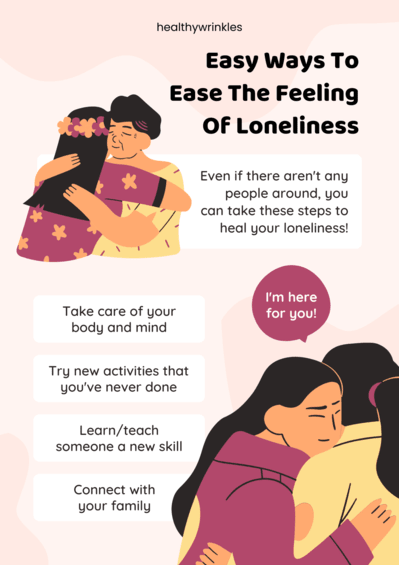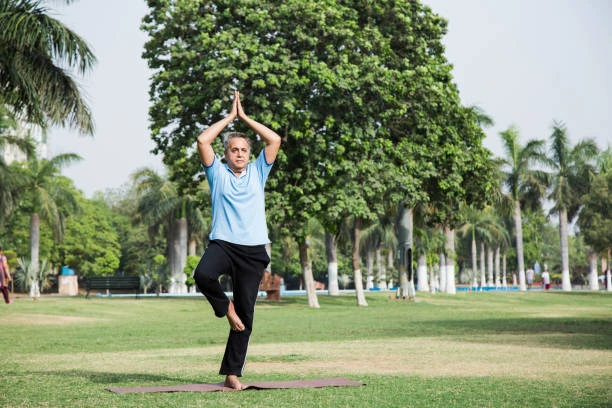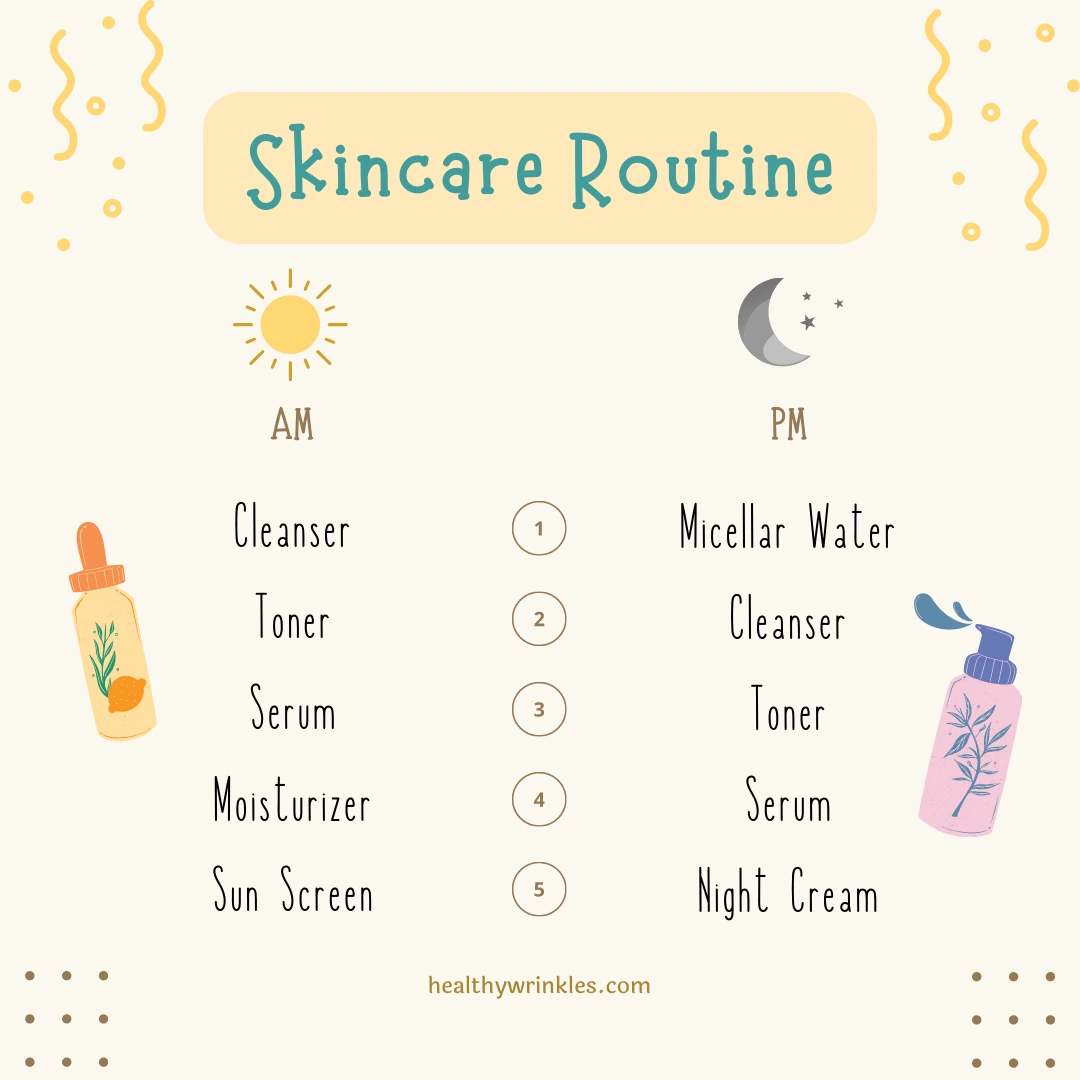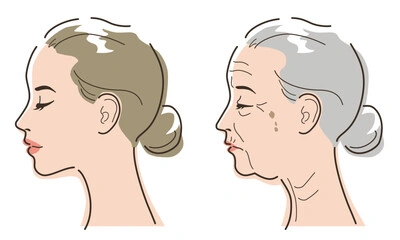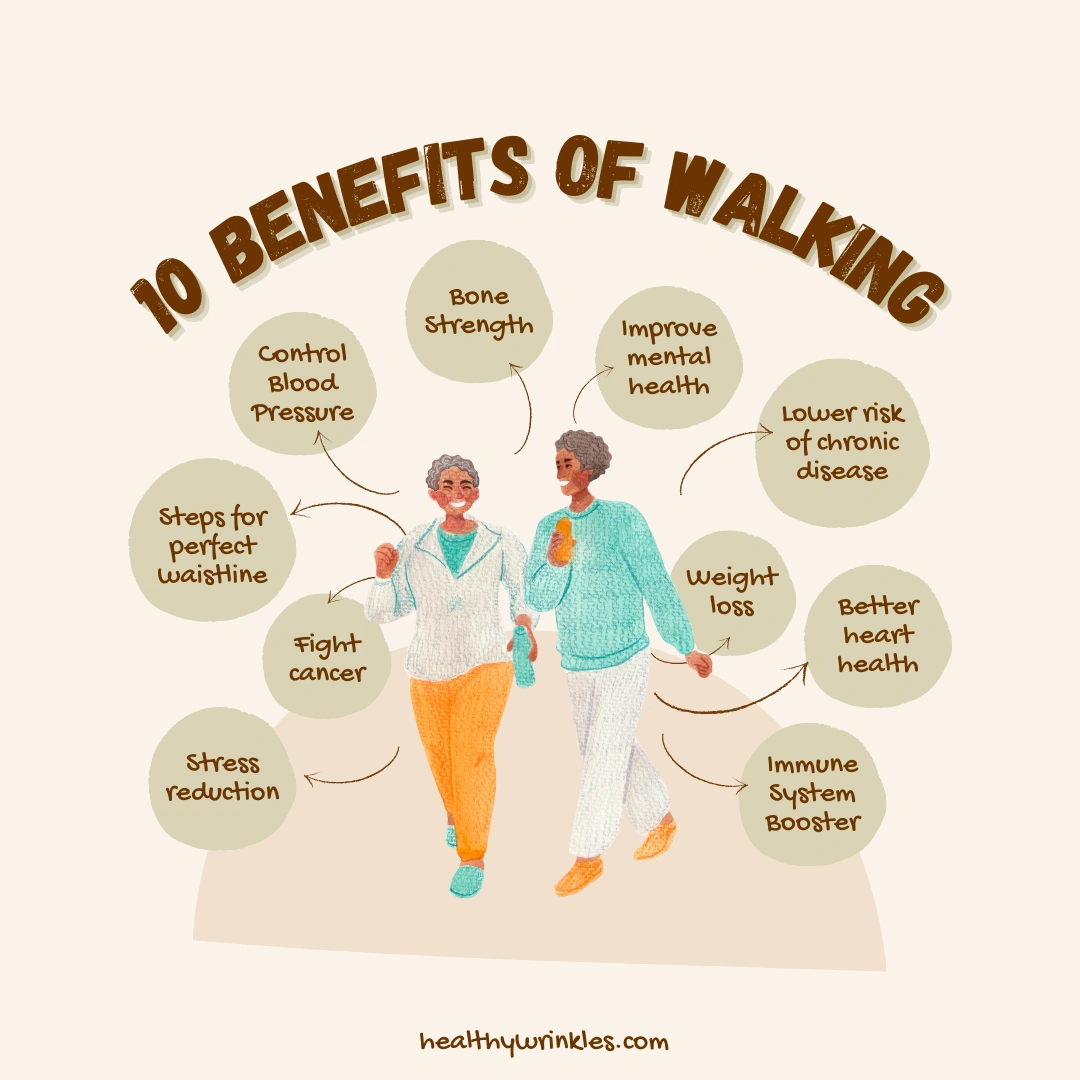The 5 Health Benefits of Regular Walking in elders
01-10-24
Walking is one of the simplest and most beneficial things seniors can do for themselves to remain healthy and happy. According to studies, older persons who walk for at least 30 minutes each day reap several physical and mental health benefits. Staying active is essential for excellent physical health at any age, but as we become older, low-impact walking exercises can be the key to greater health and even living a longer life. Here are five advantages to walking for seniors.
1.Improved physical health
Walking is also beneficial to one's cardiovascular health. Walking regularly can improve circulation, lower blood pressure, and reduce the risk of cardiovascular disease. Walking also helps to strengthen bones, joints, and muscles, which helps to decrease the chances of getting osteoporosis and osteoarthritis. Walking for at least 20 minutes in a day for older persons with chronic illnesses like arthritis can strengthen stomach and back muscles that contribute to persistent back pain. Similarly, the coordination and balance developed from regular walking reduce the probability of elderly falling. Use a walking stick or walking stand if you need some support. Finally, walking is an excellent approach to naturally strengthening your immune system and preventing illness. You can walk barefoot or use walking shoes.
2.Enhances Mental Health
Walking can be beneficial to one's mental health and one's physical health. Natural endorphins released by physical activity, such as walking, can improve mood, reduce anxiety, and distress, and promote a sense of tranquility in older persons. Seniors who take walks in the great outdoors can benefit from increased Vitamin D exposure.
3.Reduces Cognitive Decline
Walking has also been shown to reduce mental deterioration in both men and women as they age. Staying active has been shown in studies to increase attention, memory, processing speed, and cognitive function, all of which contribute to cognitive decline and dementia. Men aged 71 to 93 who walked at least a quarter mile every day had half the risk of Alzheimer's disease or dementia when compared to those who did not exercise, according to studies.
4.Promotes Social Interactions
Staying connected to a community and having plenty of social engagement is critical for elders' overall health. Walking can be an excellent way for elderly individuals to socialize. Walking provides many possibilities to create connections and relationships, whether by joining a walking group, going out a few times a week with friends, or having brief talks with neighbors and community members along a route.
5.Encourages Better Sleep
Adults' sleep quality can deteriorate as they age. Many seniors have insomnia or have fewer hours in deep or REM sleep cycles. Physical activity helps to tire the body out and puts it in a better condition to sleep well. According to studies, older folks who walk have a far higher likelihood of getting a good night's sleep. These are a few examples of walking benefits.




